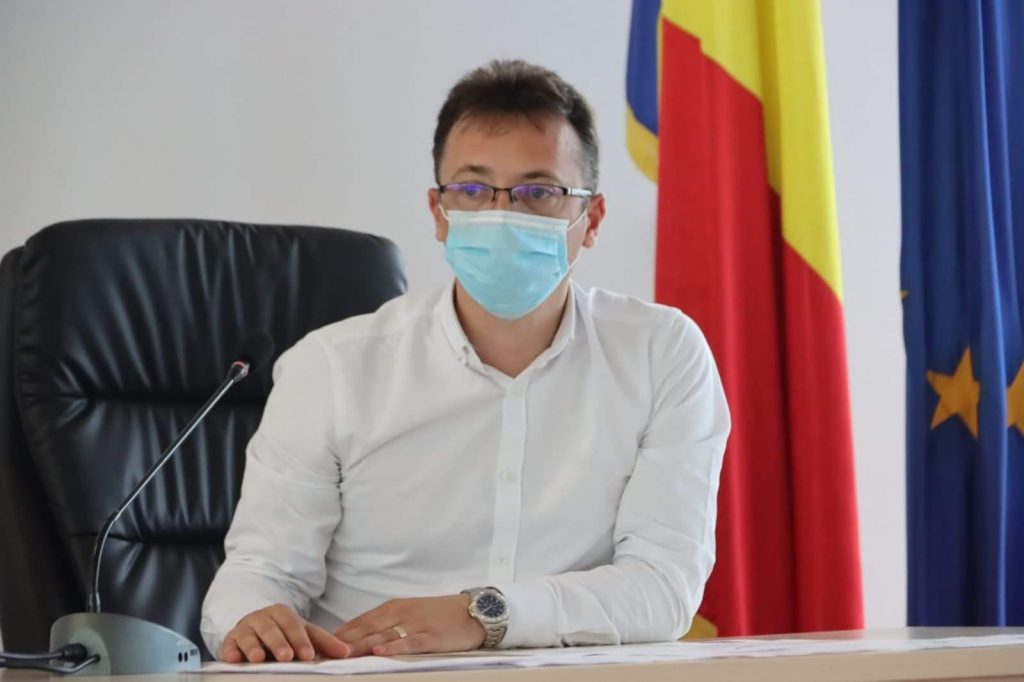The management of the Arad County Public Health Directorate (DSP) complained that half of the employees of the institute are under criminal investigation for the activities and decision made during the pandemic, such as signing service contracts for the fight against the coronavirus with no legal basis, Agerpres news agency reports. Horea Timiş, the director of DSP Arad, said that “all the employees from management, all the decision makers from the institute, have criminal records,” meaning half of the staff, or approximately 30 people.
“We are under investigation. Since the beginning of the pandemic, we have been terrorized with all kinds of complaints, that we, the doctors, may be investigated, starting with the first death from COVID-19 in Arad. Later, there were other reasons: How we carry out epidemiological investigations, or, based on the report of the Court of Accounts, due to the transportation of people from the border and purchases made in the state of emergency,” Horea Timiş explained, adding that all cases were opened by prosecutors and police officers on their own initiative.
Timiş also pointed out that during the state of emergency, there were cases when decisions were made with no legal framework, but these decisions “saved the situation.”
“For example, according to the law, I am not allowed to exceed last year’s revenue and expenditure budget; however, during the state of emergency and state of alert, the financial capacity of DSP increased due to the fact that we started to charge for doing PCR tests to make more money and purchases. Revenues and expenses automatically change compared to last year. If you violate this limit, it’s a criminal case, I understand, but should I stay and wait until the laws in the country change or should I keep going, taking into account the pandemic and the need for rapid intervention of DSP doctors and specialists,” Timiş said. The director also pointed out that in all cases when employees violated the law, no one took money from the DSP.
An example of these violations was when at the border, 1,200 people gathered; people crossed the border on foot, and the DSP decided to transport all of them to their homes in order to avoid the spread of the virus, even though they had no legal right to make transportation contracts.
“Then we wondered who should be doing the contracting, and since everything related to COVID-19 belonged to the Ministry of Health, we decided it should be the Ministry of Health. Later, the prefect and I were called by the general secretary of the Ministry of Health, and they ordered us to do everything necessary to facilitate the situation. With the Arad Prefect, I looked up all the operators that were able to provide us an impressive number of cars to transport these people in just a few hours. But in the end, we concluded the contract as DSP to be able to take the cars to the border, based on the requests of the County Command for Emergency Situations, which established the necessary number of buses,” the director explained.
Timiş added that they knew there is no legal framework for such transportation. The director later spoke with the prime minister, and under the pressure of Arad, the legal framework was created three weeks after DSP Arad signed the contract. “We signed a contract with no approved budget from the Ministry, which is obviously illegal; the Court of Accounts was right about this,” Timiş said.

Something similar happened when they sent medical personnel to the border, forcing them to work overtime, for which the doctors and nurses have filed several complaints. The director underlined that in all cases, they had to violate the law; they needed to react quickly to stop the spread of the virus.
The director also pointed out that these investigations put great pressure on the employees of the DSP and other public institutions.
Timiş thinks that when all the activities will be verified, several new criminal investigations will be launched. As the director mentioned, they might be investigated for coronavirus testing, as they decided to do tests in nursing homes and other institutions in order to find the infected people in time and stop the spread of the virus. But these types of actions were not included in the law for coronavirus testing.
“The conclusion is that Romania does not have a legal framework adapted for emergency situations,” concluded the head of DSP Arad.
Title image: Epidemiologist holding Coronavirus respiratory mask, close up. Photo: Igor Stevanovic | Dreamstime.com